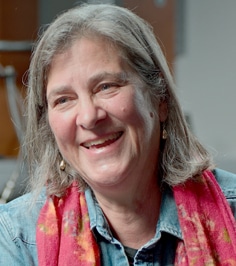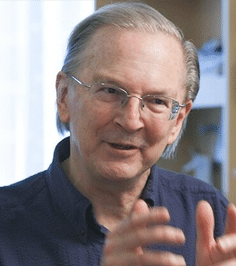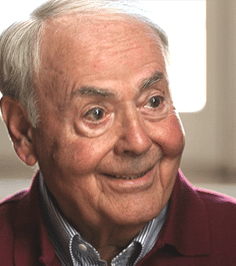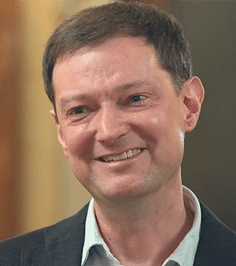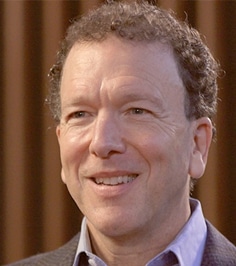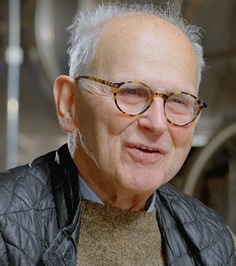The
SEARCHING CONVERSATIONS
Podcast
Every week (for ten weeks) we will be releasing an audio podcast edited down from Alan Lightman’s extended conversations with the scientists, philosophers and theologians seen during the broadcast programs. Alan adds introductory and bridging material, and the podcasts also include music from series composer/performer Zoe Keating. Find them here or wherever you get your podcasts. Please listen, learn, respond and share!
Welcome to The SEARCHING Conversations
Alan Lightman introduces SEARCHING Conversations, a companion podcast to the three part series, SEARCHING: Our Quest for Meaning in the Age of Science.
Rebecca Goldstein
Alan Lightman: “One of my longtime friends is Rebecca Goldstein. Like me, she’s a scientist and a novelist. She started studying physics at university, but switched to philosophy. One of the things she wrote really speaks to me: ‘Science tells us what is. Philosophy tells us what matters.
Rebecca Goldstein: ‘It’s a serious business… being human is a serious business.’
We spoke on an outdoor deck, high up in the Berkeley Hills in California, where she was spending several months.”
Robert Desimone
Robert Desimone is the Director of the McGovern Institute for Brain Research and the Doris and Don Berkey Professor of Neuroscience at the Massachusetts Institute of Technology. He is a leading expert in mapping how the brain organizes and prioritizes sensory information to inform our decision-making processes. As a self-described “reductionist” he believes that one day, with enough computing power, it will be possible to predict whether any two people will fall in love, and that Artificial Intelligences will become fully conscious.
Melissa Franklin
Melissa Franklin was the first woman to achieve tenure in the Physics department at Harvard. She’s an experimentalist who loves to build instruments and measure things, both wrists and ankles at dinner parties (!) and sub-atomic particles. She works on the giant ATLAS detector at CERN in Switzerland. She’s a very lively conversationalist and turned the tables on Alan a few times in this interview, including asking him if he’d “Push the Button?” You’ll hear how she got started in science, and why she thinks the best physicists are a little “wild,” sometimes behaving like “desperadoes.”
Nergis Mavalvala
Nergis Mavalvala is the first female Dean of Science at MIT. She’s a 2010 MacArthur “genius” fellow, and a key collaborator with Rai Weiss and the Caltech/MIT LIGO team, which won the 2017 Nobel Prize for the first successful detection of gravitational waves. As you can hear in SEARCHING part 3, Albert Einstein predicted in 1915 that such waves should exist, but thought they would always be too faint to ever be detected. Amazing innovations in instrumentation and computers allowed Nergis, Rai and their team to succeed – after four decades of very hard work! Somewhat tongue-in-cheek, Alan asks Nergis if that makes the LIGO project smarter than Einstein… and Nergis has the perfect answer. Despite the background hum from computers in the MIT High Bay workshop, this was one of the most lively and engaging conversations we captured for the mini-series, and now we’re very pleased we’re able to offer Nergis’ extended comments in this podcast. Enjoy!
Jack Szostak
Jack Szostak shared a Nobel Prize in 2009 for his work on telomeres, the short sequences of DNA found in chromosomes. But , as you can hear in this fascinating podcast, he thought that too many others were already working on similar research, and so he decided to change his focus to one of the most important but challenging topics in all of biology: the origins of life on Earth. Alan’s conversation ranges from cutting-edge biology to how and where we humans fit into Nature… and why anti-vaccine thinking is non-sense.
Paolo Galluzzi
Dr. Paolo Galluzzi is now President Emeritus of the Museo Galileo in Florence, Italy, where he was the Director for many years. He’s a specialist on the life and discoveries of Galileo, and how Galileo’s work was a true milestone in human thought. What the SEARCHING team found especially interesting about Alan Lightman’s conversation with Dr. Galluzzi was how Paolo revealed many aspects of Galileo’s work with the telescope that were fresh and novel… in fact, “breaking news”!
Pascal Oesch
Pascal Oesch is an Assistant Professor of Astronomy at the University of Geneva. He and his colleagues discovered a distant galaxy called GN-z11 which was, for half a decade, the oldest and most distant galaxy known. (“GN” stands for “Goods North” – the field of view of the Hubble Space Telescope within which the galaxy was found.) Now he’s working with the James Webb Space Telescope and already finding even older and more distant galaxies. In this conversation Pascal explains how GN-z11 was found, why it’s important to study galaxy formation, and reveals his personal excitement at pushing the boundaries of what’s known.
Micah Greenstein
Micah Greenstein is Senior Rabbi at Temple Israel in Memphis TN, Alan Lightman’s hometown, and a long-time friend of Alan, who describes him as “my rabbi.” Rabbi Micah is a proponent of interfaith dialog and outreach, and has sat on the board of the National Civil Rights Museum, also in Memphis. In this conversation, Micah presents a strong counter-argument to Alan’s “spiritual materialism” arguing for the existence of a soul and an essential non-material component to human existence. He also agrees with the Dalai Lama that humanoid robot Bina48 cannot be conscious.
Rai Weiss
Rai Weiss, born 1932, is a modern day Galileo: that might seem like hyperbole but he was a key player in designing, testing and then building an entirely new kind of astronomical instrument that can unveil aspects of the universe that would otherwise go completely unseen. He shared in the 2017 Nobel Prize in physics for his work on LIGO, the Laser Interferometer Gravitational-wave Observatory, which detected the 2015 collision of two black holes more than a billion miles from Earth. In this podcast, recorded in the rather noisy high bay workshop at MIT, Rai tells how he got started – tinkering with radios and hi-fi’s – and reveals fascinating details of the long decades of work to create LIGO.
CERN
CERN is the largest scientific instrument in the world, and it’s a collaboration between the European nations which funded it, and a global collaboration of researchers and instrument builders from many nations: the US, Japan, the Russian Federation, China, and many more – an example of how science transcends borders. (Listen for Andres’ wonderful story of how WW2-era Russian naval guns were melted down to provide a special kind of brass needed for one detector.) So it’s appropriate that this last audio podcast gives voice to four researchers: CERN Director-General Fabiola Gianotti (Italy); theorist Dorota Grabowska (USA); Andres Delannoy (USA/Puerto Rico) and Andre David (Portugal.) Thanks to all of them, and CERN media rep Sarah Charley, and all others who welcomed us to this unique and amazing facility.








